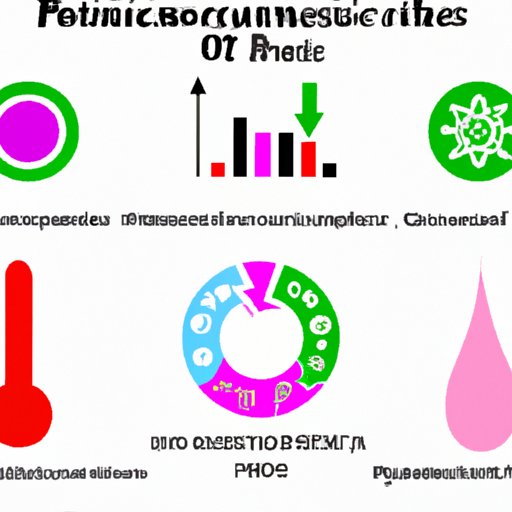
I. Introduction
Polycystic ovary syndrome (PCOS) is a common hormonal disorder that affects women of reproductive age. It is estimated that 5 to 10% of women worldwide have PCOS, making it the most common female endocrine disorder. In this article, we will discuss how PCOS develops and share insights into the genetic, hormonal, lifestyle, environmental, and age-related factors that contribute to the development of this condition.
II. Genetics and PCOS
While the exact cause of PCOS is unknown, research suggests that genetics play a significant role. If your mother, sister, or aunt has PCOS, you have a higher risk of developing the condition. The genetic link to PCOS is attributed to insulin resistance or hormonal imbalances, which can be inherited from family members. These conditions prevent the body from regulating insulin and sex hormones like estrogen, progesterone, and testosterone, leading to the development of PCOS.
III. Lifestyle Factors and PCOS
Several lifestyle factors can impact the development of PCOS. Poor dietary choices, stress, and a sedentary lifestyle can increase a person’s risk of developing the condition. On the other hand, making healthy lifestyle choices, such as eating a balanced diet, exercising regularly, and managing stress, can reduce the risk of developing PCOS. Maintaining a healthy weight is also essential, as obesity is a leading risk factor for PCOS development.
IV. Hormonal Imbalances and PCOS
Hormonal imbalances play a significant role in the development of PCOS. High levels of insulin, testosterone, and luteinizing hormone can cause a hormonal imbalance that leads to PCOS. Insulin resistance is one of the key drivers of the hormone imbalance, as it increases testosterone levels, interferes with ovulation, and leads to infertility. Hormonal imbalance can also lead to an array of health problems like acne, hair loss, and hirsutism.
V. Insulin Resistance and PCOS
Insulin resistance is a critical factor in developing PCOS. The condition occurs when the body cannot respond to insulin efficiently, leading to elevated insulin levels in the blood and impaired glucose metabolism. Research suggests that a staggering 50-70% of women with PCOS develop insulin resistance. The high insulin levels can cause the ovaries to overproduce testosterone, leading to excessive hair growth, acne, and other symptoms of PCOS. Insulin resistance also puts women with PCOS at higher risk of developing type 2 diabetes and other metabolic disorders.
VI. Environmental Factors and PCOS
Environmental factors such as exposure to certain chemicals found in cosmetics, personal care, and cleaning products can cause hormonal disruptions that lead to PCOS. Research suggests that such chemicals might interfere with the endocrine system, leading to hormone imbalances. Other environmental factors such as air pollution, pesticides, and plastics containing BPA (Bisphenol-A), can also cause hormone imbalances that contribute to the development of PCOS.
VII. Age and Ethnicity as Risk Factors for PCOS
While PCOS can affect women of any age, women over the age of 40, particularly African American and Hispanic women, have a slightly higher risk of developing PCOS. It’s believed that age and genetics play a more significant role in PCOS development for these women. However, PCOS can occur at any age, and it’s essential to know the symptoms to seek timely diagnosis and treatment.
VIII. Conclusion
Understanding the factors that contribute to the development of PCOS is critical to prevent the condition and seek timely diagnosis and treatment. Though the exact cause of PCOS may not be known, genetic, hormonal, lifestyle, environmental, age, and ethnic factors play a significant role. Maintaining healthy lifestyle choices, such as a balanced diet, physical activity, and stress reduction, can help reduce the risk of developing PCOS. If you suspect you may have PCOS, seek advice from a healthcare professional.




